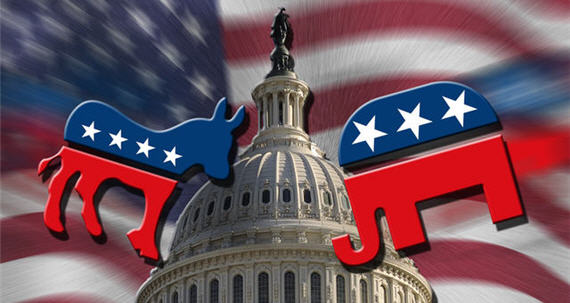A vaccine has been announced, so the market is soaring. At this stage it looks good, but the devil is in the details… We’ll provide more information when we have more details.
Before proceeding…
We must begin by re-iterating our comments in our previous US Election Post that a vaccine will be better for investment markets than the US Election outcome:
“Just to digress, the greatest near-term market influence will be the announcement of a Covid-19 vaccine. Don’t underestimate what the market will do when it is announced.’ The markets greatest enemy is uncertainty and when COVID insecurity is removed, no matter how long manufacturing and distribution takes, markets will have already rebounded way ahead of the economy.”
Just in case you missed it…
Democrat Joe Biden will be the next US President.
It’s difficult to see any legal action succeeding to overturn Biden’s election as Trump will have to provide evidence of large-scale systematic vote tampering across several states… so, in the immortal words of Dale Kerrigan, “Tell him he’s dreaming” (for those clients who remember the Aussie classic movie, “The Castle”).
Fun Fact:
Elections, anxiety, unemployment, liquor, and Chinese food: Americans’ top Google searches on Election Day reflect a nation on edge 😳
So what does this election result mean?
In a sentence: A less unpredictable President and a return to Washington ‘gridlock’.
Biden is unlikely to seriously challenge Big Tech or unwind much of Trump’s corporate tax cuts, as the Republicans will most likely retain control of the Senate.
So, Scenario 2 from our previous Report is the most likely:
A divided government – a Biden White House and Republican-held senate
This means that fiscal (government) spending would almost certainly end up being more constrained under a divided government – with a Biden administration having limited scope for significant legislative action. This may mean less spending by the government – which means no big cash splash – but also is unlikely to restrict spending in a big way, as the Republicans will want to maintain some stimulus for US businesses.
Climate Change
Any change in climate policy would also likely need to be via regulation rather than legislation. This is likely to be a lower risk to industry, as no new laws are likely to be able to be introduced to upset the current economic trends. Major healthcare reform and tax changes would be difficult to achieve, so that is likely to mean ‘business as usual’ for the time being. As we said for the Australian Election back last year, “nothing to see here, move on.”
On the other hand, policies with bipartisan support such as infrastructure spending would likely be easily implemented.
In a nutshell, the likely tight Senate numbers and the filibuster rule will limit the ability of Democrats to push through all that they want – such as raising corporate taxes and much tougher regulation of industry.

In our view, this is likely to mean that there is no government threat to industry and to the US economy in the short term. Markets are likely to continue to enjoy some certainty, which we hope will bode better for investment markets as a whole. There is likely to be more compassion for humanitarian causes (due to the support for Biden from black America), of which we are unable to determine the financial impact at this point in time.
What are the implications for Australia?
The main positive implications for us:
- Ultimately a stronger US economy which will benefit the Australian economy;
- A stronger, more consistent relationship with the US;
- A toning-down of the trade war with China in favour of a more diplomatic and engaged approach to resolving trade issues, which will be less negative for Australia; and
- US re-entry into the TPP (Trans-Pacific Partnership).
More aggressive action on climate change in the US may also force Australia, and Australian companies (that engage with the US, down a more aggressive response to climate change too.
Beyond short term uncertainties around US civil tensions in the aftermath of the election and when US fiscal stimulus will come, overall, most commentators see it as benefitting Australian shares and the Australian dollar.
And China?
Under Biden, China may well face greater pressure to open up its economy to outside investment and imports. Rather than the unilateral actions of President Trump, Biden has pledged to build a coalition of like-minded democratic countries to collectively tackle China’s lingering restrictions on trade and investment, as well as its increased military adventurism in areas such as the South China Sea.
We have already seen recent announcements by Germany to support Australia and to provide a presence in the Indo-Pacific region – which is specifically to monitor the activity of China. (China is one of Germany’s major trading partners, as both a supplier and customer). Concern with China could also see expanded Western engagement with other countries in the Asia region, such as India, Vietnam, South Korea, Japan and Indonesia.
In Conclusion
Good news for stock markets and share portfolios. The vaccine so far has meant some certainty that the medical, health and humanitarian crisis may subside, which in turn should mean a more positive outlook for financial systems and economies in general.
All up, this outcome is close to a best-case scenario for markets – a more moderate, predictable President, whose most market-worrying policies are likely to be thwarted by the Senate.
Historically US shares have performed best under a Democrat President and a divided Congress.
The key thematic shift under Biden, however, will be to encourage the transition to cleaner energy to the detriment of the traditional fossil fuel industry.
That’s it, so we can all rest easy for now.
For those of you familiar with our Sayings – Maybe now we can sleep at night, for the next few weeks at least!




